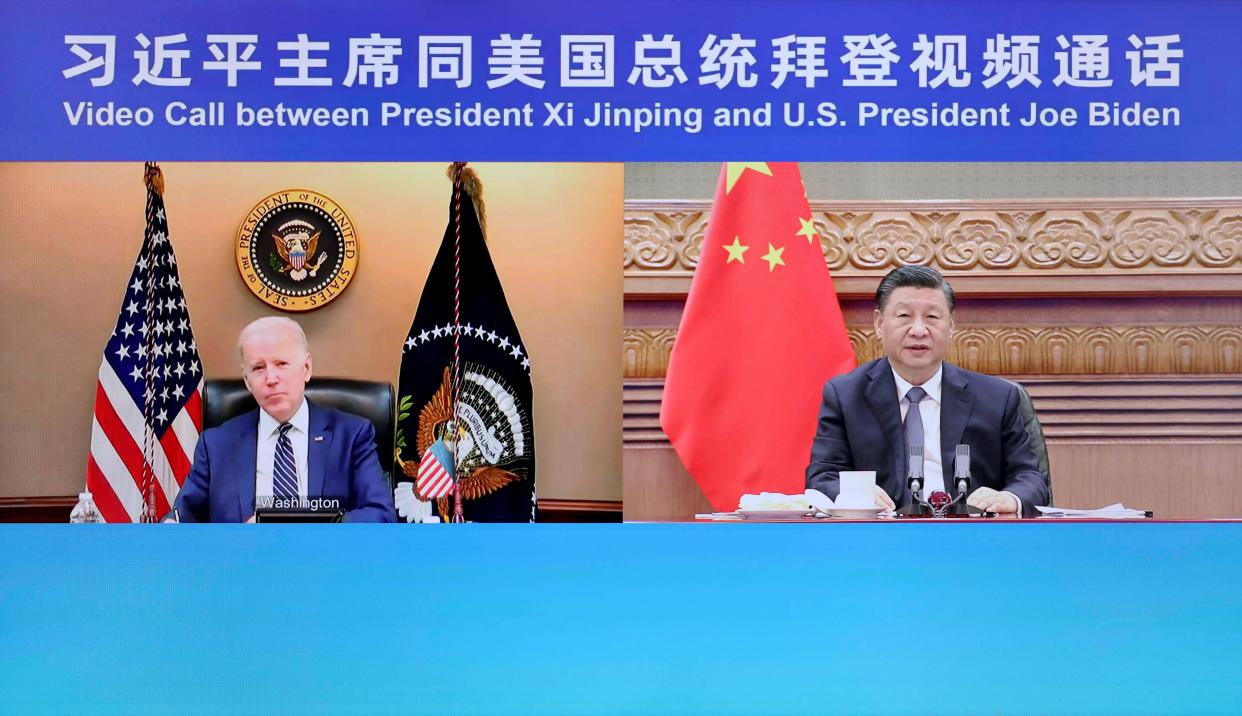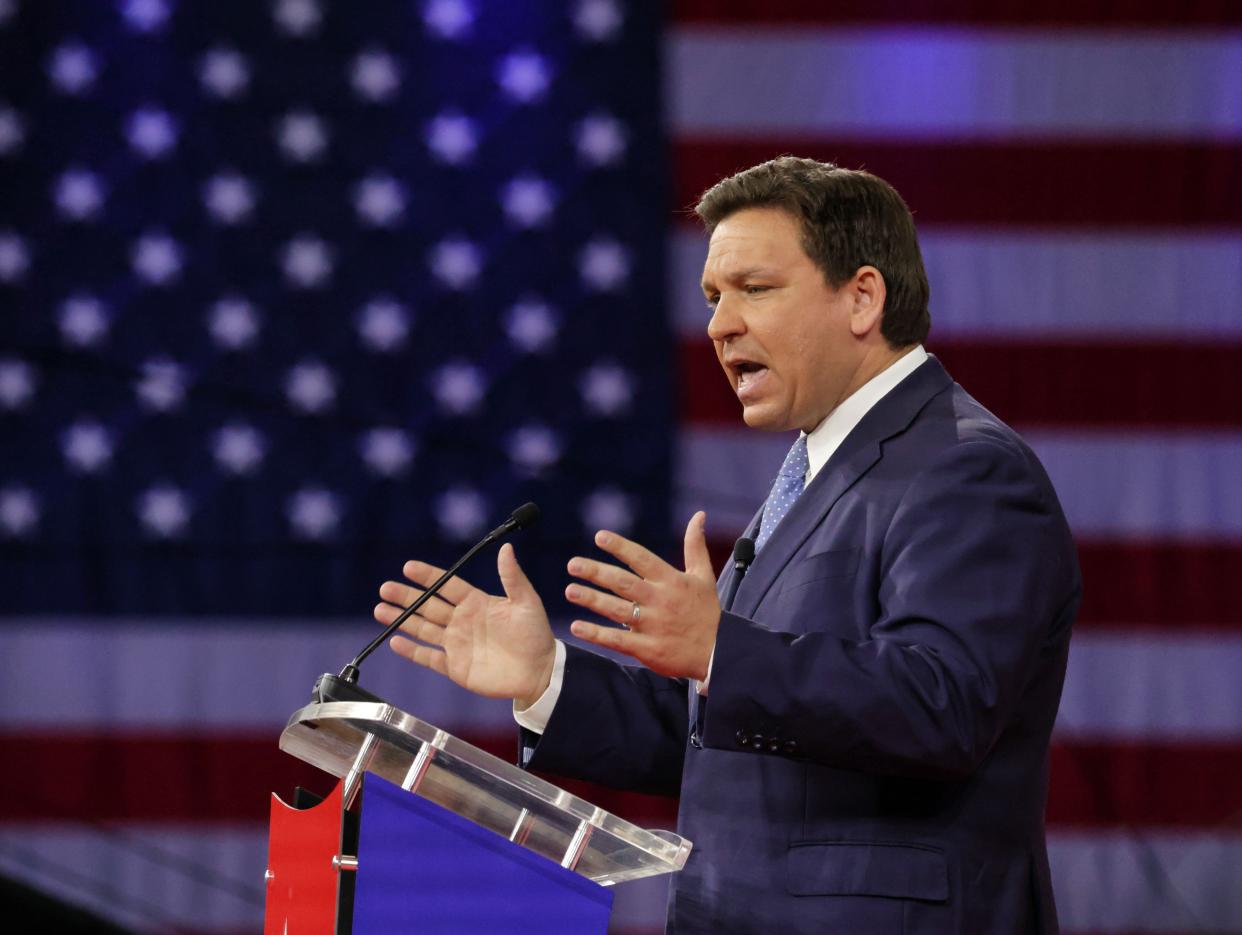Exodus from Russia renews concerns over US pensions investing in emerging markets
Pressure has mounted in recent weeks on U.S. pensions to dump Russian assets, but policymakers scrambling to unwind investments face a bigger moment of truth — what about their holdings in other autocratic regimes?
Russian President Vladimir Putin’s invasion of Ukraine has prompted many of the largest public pension plans to quickly divest from Russian securities or trim their exposure to harder-to-exit allocations. The first-of-its-kind move to exit so abruptly put into question the positions of retiree assets in other emerging markets — China specifically — where there's heightened geopolitical risk.
For the most part, Russian assets comprise a tiny sliver of U.S. pension investment portfolios. On the other hand, the exposure to China, even indirectly through international indexes, is much greater. And as retirement plans quickly say no more to Russian investments, onlookers have renewed focus on Chinese investments.
A survey conducted by Invesco last year of 200 institutional investors across the globe found that 86% of respondents maintained or grew their China exposure over the one-year period through June and July, and 64% expected further increases in the year ahead. Only 12% reported a reduction in their exposure to China.
Institutional investors put money in China for a number of reasons, including expectations of the growth and expansion potential of China’s economy and listed-company profits and improvement in the quality of financial intermediaries within the country, according to Invesco. Moreover, the pandemic has increased risk appetite for China among more than half of survey respondents.
The appeal of high-growth Asian, and particularly Chinese assets, is clearly there for many pensions as they seek out the returns needed to meet funding needs. But the degree to which institutional investors single out exposure to China has varied significantly.
The Tennessee Consolidated Retirement System in Nashville has been free of Russia- and China-linked investments thanks to a screening methodology in place for nearly a decade by the State Treasury Department used to evaluate nations eligible for investment in the emerging market portfolio.
The process evaluates each emerging markets country against The Economist magazine’s Global Democracy index and the Corruption Perceptions Index created by Transparency International. Investments in countries that score poorly in a combination of the indexes are not taken into consideration for the portfolio.
According to The Economist's latest democracy gauge, China represents the largest share of substantially more than a third of the world’s population — 37.1% — living under authoritarian rule.
“The Tennessee Department of Treasury believes in the rule of law and democracy and that those attributes make for sound investments,” a spokesperson for the state agency told Yahoo Finance.

Before the Minnesota House of Representatives approved a plan Thursday to pull $10 million in state investments from Russia and Belarus, Republican lawmakers sought to add provisions that included prohibiting allocations to China and 15 other countries. But the proposals were ruled out before members of the House finalized the bill for a vote.
The move would be far from the first effort by government leaders to try to pull U.S. retirement dollars out of the Asian country.
Just last year, a bipartisan group of senators led by Republican Marco Rubio and Democrat Jeanne Shaheen revived attempts to prohibit the half-trillion Federal Thrift Savings Plan (TSP), the country’s biggest retirement plan, from investing in any Chinese securities in a follow-up measure to the Trump administration’s 2020 halt on efforts to shift TSP assets to an index fund that included Chinese companies. It’s because of that effort the TSP has no holdings in Russia — and now recently-introduced legislation seeks to bar the federal plan from making any future changes that would allow federal employees’ retirement funds to be invested in Russian companies.
In December, Florida Governor Ron DeSantis also pushed for an audit of Florida’s main pension system, the $200 billion State Board of Administration, to review any of its investments tied to the Communist Party of China.

“The U.S. as a whole should be disentangling from China,” DeSantis said at board meeting in December. “But certainly, our investments should be disentangling.”
'A wake up call'
Pennsylvania state Sen. John DiSanto was one of the critics of a recent move by the state's SERS pension fund (on which he is a board member) to sell off Russian investments, arguing that a fire sale of assets could result in a loss to the plan while giving the opportunity for Russian businessmen and oligarchs to buy up stocks at a cheaper price and churn a big profit if Russia’s financial situation recovers.
DiSanto emphasized he was against the Russian war, but had fiduciary concerns about whether it was worth the symbolic gesture for the pension to absorb the loss. After debating whether to terminate its allocation to Russian securities and take a loss or hold on and wait for a recovery, the plan moved forward to sell. At that point, the value of its stake fell sharply to $7 million in early March from $60 million at the end of last year.
DiSanto's concerns were around how abruptly the plan moved to boot Russian assets when pensions should be discussing similar geopolitical risks more broadly. Some critics have separately raised questions over why retirement plans held on to investments in the country even as warnings came leading up to the war.
“The underlying issue I have is that the legislatures should be making this decision on what we should or should not be investing in like we did with Sudan and South Africa prior,” DiSanto told Yahoo Finance. At the time, more than a decade ago, decisions to pull investments in Sudan and South Africa over human rights abuses were made more prudently and in consultation with pension investment advisers. “And that brings me to the thought, should we be revisiting holdings on a lot of these issues as with Russia, but with other autocratic states like China?”
DiSanto also underscored investments in OPEC over its refusal to supply more oil into the system as alternatives to Russian oil, and India, which has not supported the United Nation’s resolution against Russia.
“I think this has really given us a wake up call that we should be looking at a lot of these issues that we are investing in and make sure that they are in the best interest of our plan holders,” DiSanto said.
The question around these types of investments is not only a moral one, but a fiduciary one about geopolitical risk management and how sustainable it is to be invested in countries with similar regimes.
“This situation has elevated the perception of the risk on how quickly things can go poorly with respect to an investment in a country that is less stable in terms of its geopolitical risk,” Steve Foresti, chief investment officer of the institutional investment advisory firm Wilshire Consulting, told Yahoo Finance in an interview. “I don't think any institution that has invested in emerging markets did so thinking that the risks weren't elevated versus buying blue-chip, large-cap U.S. equity, but it is still an eye opener when you see the entire country of Russia get marked to zero.”
The world response with economic sanctions that has effectively cut Russia out of the global financial system is likely to have profound and long-term impacts on how other countries think about their investments, Foresti said.
“There are a lot of knock-on implications that are much bigger than just the weight that Russia represents in the emerging markets or in the equity market,” he added. “Does it get a sharper focus on some of the embedded risks in the other countries that are included in these emerging market indexes?”
A recent Morningstar report notes that missing the risks of investing in Russia was understandable given the small portfolio composition it represents for most diversified investors, but exposure to China is harder to overlook.
"China has been this incredibly lucrative emerging market to invest in, but there's been so little discussion of the regime," said Jon Hale, director of sustainability research for the Americas at Morningstar.
The question for investors is whether "it is really sustainable long term to be investing in these kinds of countries,” he said, calling it "a systemic risk that we are all contributing to and that we should be paying more attention to."
—
Alexandra Semenova is a reporter for Yahoo Finance. Follow her on Twitter @alexandraandnyc
Read the latest financial and business news from Yahoo Finance
Follow Yahoo Finance on Twitter, Instagram, YouTube, Facebook, Flipboard, and LinkedIn
